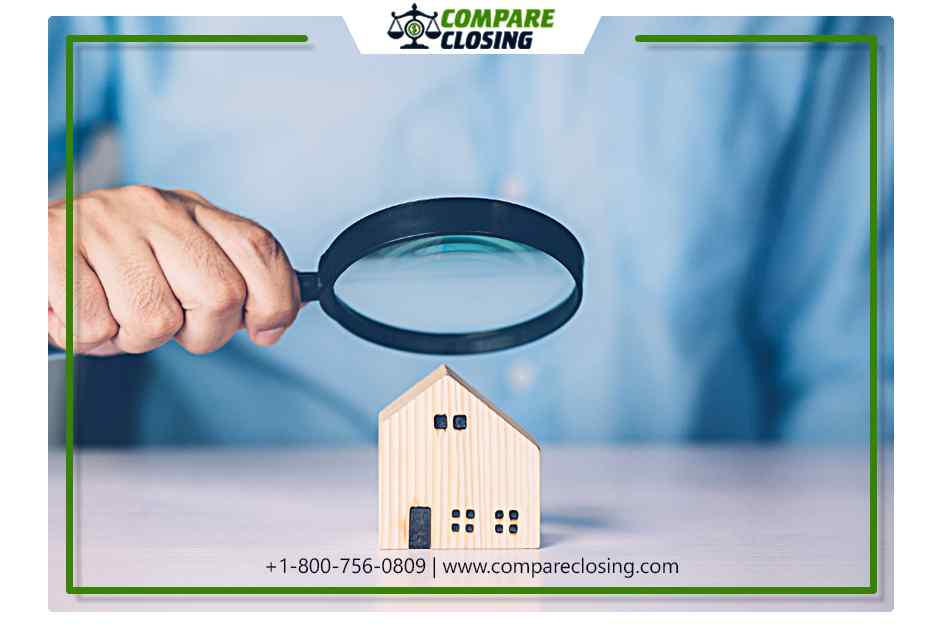Table of Contents
- What Are Netting Escrows & How Does It Work?: The Best Guide - January 2, 2024
- The Secret About Prescriptive Easement: Top Guide 1 Must Know - December 4, 2023
- About Home Equity Loans In Texas And How Can One Obtain It - November 27, 2023
About Property Inspection
A non-invasive, visual inspection of a property, that is carried out by a fully qualified professional is called a Property Inspection.
These property inspectors evaluate buildings and their components.
A property inspection has its own pros and cons. It can give you peace of mind, at the same time you also discover things that you’re not prepared to deal with.
Property inspections take place for different reasons. Though you don’t need to experience all these types of inspections, it’s always useful to know what to expect when you’re faced with it.
Pros of a Property Inspection
With an inspection, you know that your property is up to code and it also confirms that the property is safe and meets the required building codes.
When it’s inspected and no major issues are found then it is considered as best case.
Your property could be worth more than you thought it would. The appraisal of your home requires a few inspections.
The interior and the exterior is appraised by a third-party appraiser who will inspect and compare your home with similar homes in the area to come up with a price that they think your home is worth, which could be much higher than you originally thought.
Cons of a Property Inspection
During a property inspection, serious issues might be found. For instance, the property inspector might detect structural cracks in the foundation, raised levels of radon, or a termite infestation the remedy for which can cost you a lot of money.
Another drawback of getting your property inspected is the possibility of getting an inspector who’s just simply looking to find faults.
By finding faults he might want to justify the expense of being hired for the property inspection.
A report could include a list of minor fixes that can be easily repaired, like the cracks in a driveway or cleaning of the air duct vents.
Though they are minor, they have the potential to shoo off prospective buyers. Similarly, they might be used to try to negotiate the purchase price down.
Types Of Property Inspections
I - City Inspections:
When the inspections can be conducted by the city or municipality at the location of your property it is city inspection.
Certificate of Occupancy which is also known as a CO certifies that the property is fit to be lived in.
This certification is required by some municipalities when you build a new home, you renovate a home, or when you sell an investment property.
A Certificate of Habitability is to ensure that the building meets certain health and safety codes.
Thereby ensuring that it’s, suitable to be lived in. So every time you re-rent a home the municipalities can require you to have this inspection done.
A fire inspection may also be required when you re-rent a home. With this inspection, you can make sure that you have the appropriate number and placement of carbon monoxide detectors and smoke detectors in your property that are properly working.
These detectors are usually required near bedrooms and internal combustion appliances like furnaces or water heaters.
II - State Inspections:
A few states require certain types of properties to be inspected every few years to ensure they meet habitability standards, along with inspections at the city level.
For instance, in the state of New Jersey properties with a minimum of three units must have a state inspection every five years.
Whereas single-family and two-family properties are not required to have this inspection.
The job of the property inspector is to ensure that the building and the individual apartment meet all health and safety codes.
III - Construction Inspections:
When work is being done on your property some city or state may require additional construction inspections to ensure that all the work is up to code.
A building inspection involves any work which does not include plumbing, electrical, or fire-related.
So they could be issues like framing, drywall installation, siding, roofing, or installation of a new staircase.
Plumbing inspection also needs to be passed by your property if you’re having any of this type of work done.
The inspector might appraise rough plumbing, like the new drain lines or new water lines being run.
They could also inspect finished plumbing, like in case of replacing a kitchen sink or bathroom vanity sink.
An electrical inspection needs to be passed if you’ve rewired the house or upgraded electrical service to your home.
Construction inspection also involves a fire inspection to ensure that you’ve used the correct fireproofing between walls, or between walls and ceilings.
For example, in certain areas, like the garage ceiling, you might need thicker sheetrock.
IV - Bank Inspections:
If you’re purchasing a home with financing, or if a buyer is purchasing your home with financing then certain inspections might be required by the bank.
A bank usually requires an appraisal where they’ll hire a third-party appraiser to inspect the home, both inside and out, to determine if it’s worth the amount of money they’re loaning and to ensure that there aren’t any issues.
Environmental site inspection is more common with commercial properties or larger multi-family homes.
It is done to identify if there are any environmental hazards like asbestos, lead, mold, radon, or mercury. If any hazard is found there would be a detailed inspection.
V - Insurance Inspections:
Insurance Inspections – This happens when an insurance company sends out one of their own representatives to do an exterior walk-through, at times they might also contract a third-party inspector to do the inspection.
An internal inspection, depending on the property and the insurance carrier might also be required at times.
The reason this inspection is carried out is to determine the liability risk and to make sure the home is insurable for the type of policy one is buying.
For instance, the insurer will check that you’re not trying to buy homeowners’ insurance when the property is actually a nail salon.
The inspector also wants to inspect any potential liability issues, like cracked sidewalks or ceilings, which are falling.
This is to make sure that they do not face any false insurance claims in the future for problems that existed before you purchased the policy and that there aren’t any obvious safety issues leading to future insurance claims.
VI - General third-party Inspections:
The prospective buyers of your property have a legal right to request property inspections. It depends on the buyer as to how deeply they want to have it looked into it.
A general home inspection is normally conducted by a home inspector, who does not have a specialty in a particular area.
The foundation, roof, electrical work, HVAC and heating, chimney, windows, sewer, and plumbing are areas of inspection.
A report of findings for the prospective buyer will be put together by the property inspector and if necessary he will make recommendations for further action.
To further inspect areas of concern that were found in a home inspection a prospective buyer can bring in a specialist.
This could include a roofing specialist, a certified plumber, or an engineer for structural issues.
A buyer might also want to check if there are any easements for a shared driveway or a public sewer line that runs along with the land of the property.
Conclusion
Now that you have a better idea about what home inspections are, and the different types of home inspections you now have a better idea of what to expect when it comes to home inspections.
Home inspections help you to learn more about your home and make a more informed decision about what to do with the home inspector’s results.
Home inspections help you to learn more about your home and make a more informed decision about what to do with the home inspector’s results.
Amanda Byford
Amanda Byford has bought and sold many houses in the past fifteen years and is actively managing an income property portfolio consisting of multi-family properties. During the buying and selling of these properties, she has gone through several different mortgage loan transactions. This experience and knowledge have helped her develop an avenue to guide consumers to their best available option by comparing lenders through the Compare Closing business.






Thank you for explaining that construction inspections are divided into three different categories. I’m interested in learning more about property inspection services because I plan to get my home appraised soon. I’d like to first know if it is in need of immediate repairs.